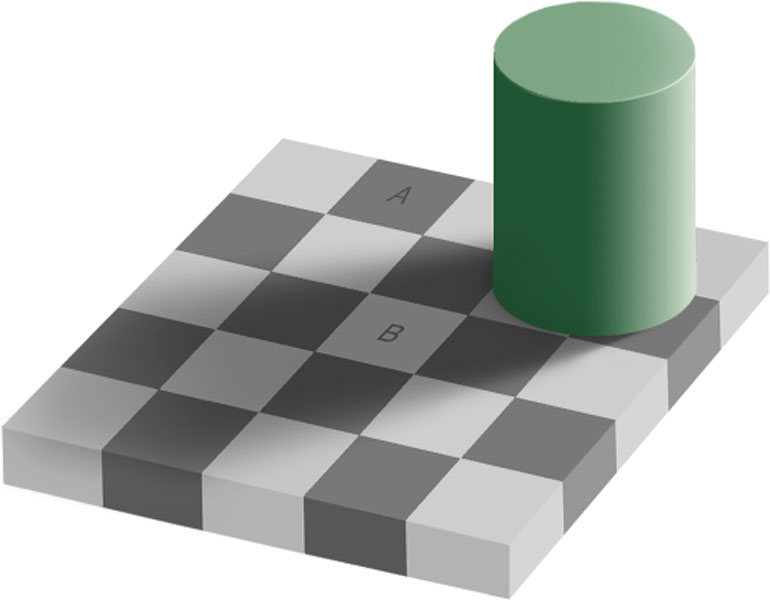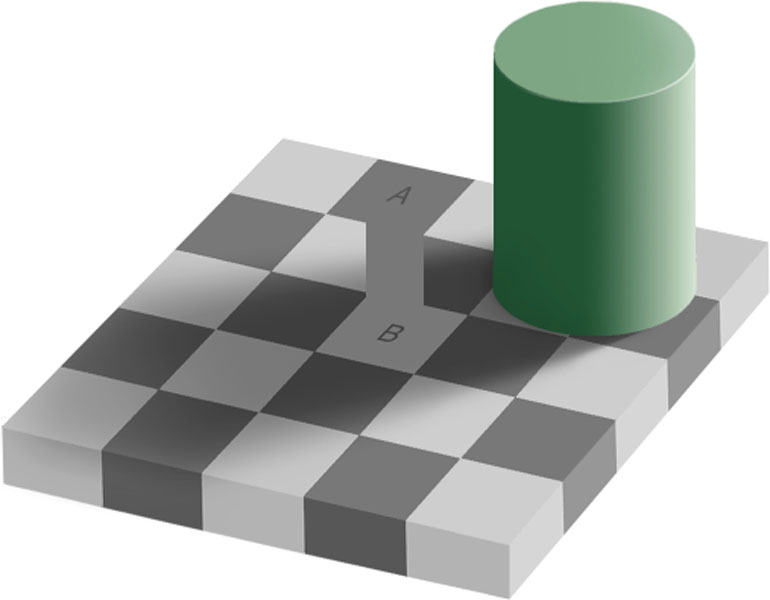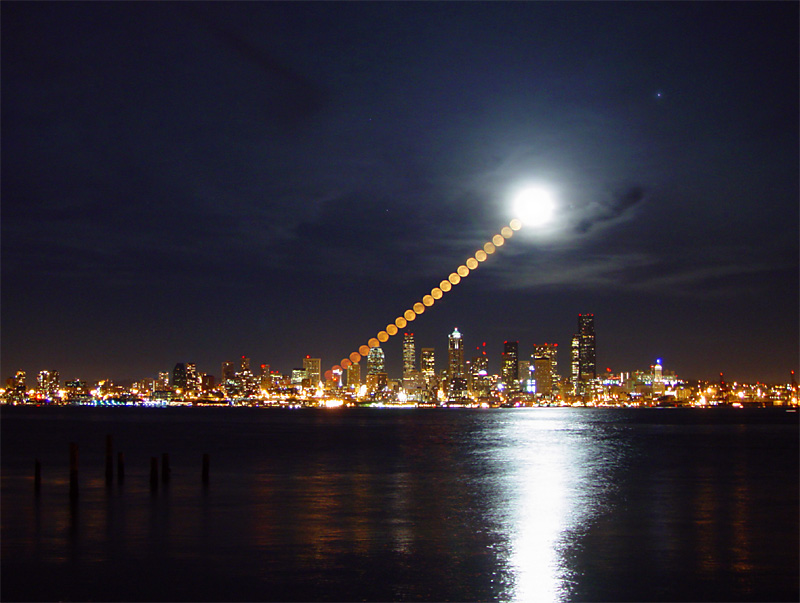
The Astronomy Picture of the Day today is not about astronomy, per se, but rather about illusions. The image above is fairly common. You see the checkerboard pattern but are squares A and B the same color? They look different to me. Then you see the picture below.
 The squares are connected so that instead of looking like different colors, they look close to identical. (I still see square A as darker than square B but maybe that's my age showing.)
The squares are connected so that instead of looking like different colors, they look close to identical. (I still see square A as darker than square B but maybe that's my age showing.)No one knows why people see the squares as different colors, but we do.
The site also has a link that, with a few clicks, takes you to this picture.

Ever notice that when the moon is near the horizon it looks much bigger than it does high in the sky? I've seen it may times, low to the horizon, and my wife calls that a "harvest moon," although that's not really right. In any case, the moon does seem much larger when it is near the horizon than when it's high. In truth, the moon always has an angular diameter of about 0.5-degree, so it's not any bigger when it is low than when it's high.
No one knows why we see the moon this way, some say we interpret distance objects as wider (so on the horizon we "see" this distance but in high in the sky we don't interpret it as such) or one's eyes focus differently for the different positions of the moon.
So, here are two simple phenomena which no one understands. These pictures reminded me of another phenomena that I thought was a legend. The phenomena is that if you place equal measures of cold water and hot water in a freezer the hot water will freeze first. Sounds crazy, I mean, the hot water has to cool to the temperature of the cold water before it can freeze so we would expect the cold water to freeze first. The cold water has a head-start as each cools to 32-degree Fahrenheit.
Not so. In fact, yesterday I was browsing the (now purchased and its way to me) book The Science of Cooking by Peter Barham and in there I found the following.
 In this short excerpt, we see that hot water does freeze faster than cold water and yet the experts, physicists no less, are stumped. They have no idea why.
In this short excerpt, we see that hot water does freeze faster than cold water and yet the experts, physicists no less, are stumped. They have no idea why. I think we should revel in these puzzles and see that with all we know, we know very little. Our eyes mislead us in viewing a simple picture, they mislead us in viewing the heavenly skies, and science can't explain (yet!) the nature of water freezing. Simple yet inexplicable.
It makes me wonder: just what can we know and of what can we be certain?

No comments:
Post a Comment